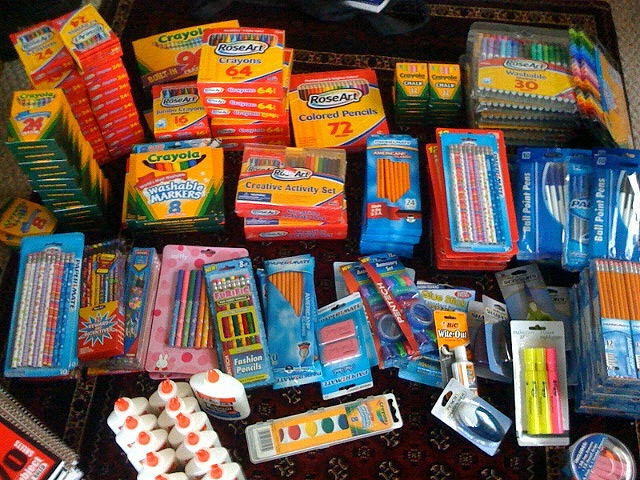If you ask any Egyptian what is the key to making Egypt great again, without any hesitation their answer would be better education — the same exact answer to the same exact question we’ve been asking for decades. Yet even after all this time, nothing has changed.
If anything, public education in Egypt has gotten worse while we sit idly by waiting for the government to improve the situation. Whether the government can’t or won’t help, this can’t go on. Problems in our public schools affect all of us one way or another and we all have a duty to help.
Here are five things about Egyptian public schools that desperately need to change:
1. Overcrowding

In Egypt, there are classes with fifty to hundreds of students. Not only is this a safety hazard, it defeats the entire purpose of school, which is to go and learn. How is a person supposed to that when he isn’t given the attention or help he needs and is constantly distracted? Teaching children is hard enough, but getting the attention of fifty or more at the same time is damn near impossible and that is what teachers are being asked to do every day.
Ideally, schools would receive more funding to build more classrooms and hire more teachers, but since it doesn’t seem feasible, school days could start and end at different times and students could attend in shifts.
2. Teaching through fear and violence

Over the past year, we’ve been hearing about extreme cases where teachers have actually injured their students. And while this is considered illegal, most public school teachers use fear as a motivator to teach — whether it’s through the threat of violence or actual violence.
Surprise visits by government officials or neighborhood officials or even an educational non-profit organization would go a long way, as teachers would fear getting caught or penalized, and not knowing when that could happen could stop them.
3. Lack of school supplies or transportation

While school books and copybooks are often supplied by public schools, other necessary school stationary usually isn’t, as well as transportation for all the kids who live far away. This leads to kids having to buy the supplies they need as well as spend money on transportation, and since a lot of the people who go to public schools come from low-income families, these extra expenses can be prohibitive.
What each neighborhood could do is fundraise or allocate funds (for those that are a bit more well off) and buy supplies for the students in their neighborhood. They could also organize a carpooling service using volunteers for whoever wants to help kids get to school.
4. Teachers are unqualified to teach their courses
 Due to low budgets, teachers are asked to teach more than one subject, and naturally they are not qualified to do that. Ideally, the government would provide more funding to attract higher qualifications and supervision to make sure that the money is well spent.
Due to low budgets, teachers are asked to teach more than one subject, and naturally they are not qualified to do that. Ideally, the government would provide more funding to attract higher qualifications and supervision to make sure that the money is well spent.
If the government can’t or is unwilling to do that, each neighborhood should again do their best to help raise and allocate funds for the public schools in their community, as well as supervise and make sure the money goes where it needs to go, fundraising will need to be done.
5. Teachers preferring to give private lessons

Again, this is a problem of funds. Because teachers aren’t paid enough, they use private lessons to compensate, which discourages them from giving their all in the classes they teach. Again, the funds need to be allocated either by the government or by the neighborhood.
While it may seem unfair or unrealistic for neighborhoods and communities to be responsible for schools in their area, depending on the government alone hasn’t gotten us anywhere. If public schools are accountable to more than just the government, things could change. If just a small group of committed residents from every neighborhood decided to help, public schools would be better off than they are now.
WE SAID THIS: Don’t miss How Much Are You Paying for Your Child’s Private Education in Egypt.


